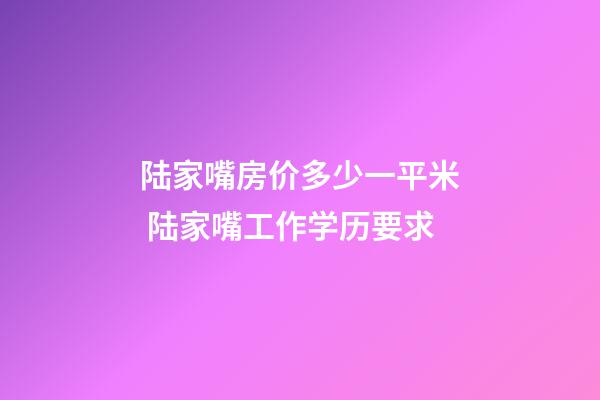pep小学英语句子常用表达法汇总
【第1句】: PEP英语一到六年级的常用表达法和单词
小学的吧,从三年级开始才有英语科,加油,很容易的!将课本里的单词表,词组(几乎课本里的全背,拿个高分轻而易举,关键要每天都背,每天其实只用背很少,积少成多,勤!)相比起初中,高中,小意思啦!一.学习用品(school things) 钢笔pen 铅笔pencil 铅笔盒pencil-case 尺子ruler 书book 书schoolbag 漫画书comic book 明信片post card 报纸newspaper 包bag 橡皮eraser 蜡笔crayon 卷笔刀sharpener 故事书story-book 笔记本notebook 语文书Chinese book 英语书English book 数学书math book 杂志magazine 词典dictionary 二.人体(body) 脚foot 头head 脸face 头发hair 鼻子nose 嘴mouth眼睛eye 耳朵ear 手臂arm 手hand 手指hand 腿leg尾巴tail 身体body 三.颜色(colours) 红red 蓝blue 黄yellow 绿green 白white 黑black 粉红pink 紫purple 橙orange 棕brown 灰grey 四.动物(animals) 猫cat 狗dog 猪pig 鸭duck 兔rabbit 马horse 大象elephant 蚂蚁ant 鱼fish 鸟bird 鹰eagle 鹿deer 海狸beaver 蛇snake 老鼠mouse 松鼠squirrel 熊bear 袋鼠kangaroo 猴monkey 熊猫panda 狮子lion 老虎tiger 狐狸fox 斑马zebra 长颈鹿giraffe 鹅goose 母鸡hen 火鸡turkay 小羊lamb 绵羊sheep 山羊goat 奶牛cow 驴donkey 鱿鱼squid 龙虾lobster 鲨鱼shark 海豹seal 抹香鲸sperm whale 虎鲸killer whale 五.人物(people) 朋友friend 男孩boy 女孩girl 母亲mother 父亲father 姐妹sister 兄弟brother 叔叔;舅舅uncle 男人man 女人woman 先生Mr 小姐Miss 女士lady 妈妈mom 爸爸dad 父母parents (外)祖母grandma/grandmother (外)祖父grandpa/grandfather 姑姑aunt 儿子son 婴儿baby 堂(表)兄弟;堂(表)姐妹cousin 小孩kid 同学classmate 女王queen 参观者visitor 邻居neighbour 校长principal 大学生university student 笔友pen pal 旅行者tourist 人物people 机器人robot 六. 职业(jobs) 教师teacher 学生student 医生doctor 护士nurse 司机driver 农民farmer 歌唱家singer 作家writer 男演员actor 女演员actress 画家artist 电视台记者TV reporter 工程师engineer 会计accountant (男)警察policeman 销售员salesperson 清洁工cleaner 棒球运动员baseball player 售货员assistant (女)警察policewoman university student(大学生) 七.食品、饮料(food and drink ) 米饭rice 面包bread 牛肉beef 牛奶milk 水water蛋egg 鱼fish 豆腐tofu 蛋糕cake 热狗hot dog 汉堡包hamburger 炸薯条French fries 曲奇cookie 饼干biscuit 果酱jam 面条noodle 肉meat 鸡肉chicken 猪肉pork 羊肉mutton 蔬菜vegetable 沙拉salad 汤soup冰ice 冰激凌ice-cream 可乐Coke 果汁juice 茶tea 咖啡coffee 早餐breakfast 午餐lunch 晚餐dinner 八.水果、蔬菜(fruit and vegetable ) 苹果apple 香蕉banana 梨pear 橙orange 西瓜watermelon 葡萄grape 茄子eggplant 胡萝卜carrot青豆green beans 西红柿tomato 土豆potato 桃peach 草莓strawberry 黄瓜cucumber 洋葱onion 卷心菜cabbage 九.衣服(clothes) 夹克衫jacket 衬衣shirt T恤衫T-shirt 短裙子skirt 连衣裙dress 牛仔裤jeans 长裤pants 袜子socks 鞋子shoes 毛衣sweater 上衣coat 雨衣raincoat 短裤shorts 网球鞋sneakers 拖鞋slippers 凉鞋sandals 靴子boots (有沿的)帽子hat 便帽cap 太阳镜sunglasses 领带tie 围巾scarf 手套gloves 十.交通工具( vehicles ) 自行车bike 公共汽车bus 火车train 小船boat 轮船ship 快艇yacht 小汽车car 出租车taxi 吉普车jeep 小货车;面包车van 飞机plane 地铁subway 摩托车motor cycle 十一.杂物(other things ) 窗户window 门door 课桌desk 椅子chair 床bed 计算机computer 写字板board 风扇fan 灯light 讲台teacher's desk 图画;照片picture 墙壁wall 地板floor 窗帘curtain 垃圾箱trash bin 壁橱closet 镜子mirror 床头柜end table 足球football 礼物present 随身听walkman 台灯lamp 电话phone 沙发sofa 书架shelf 冰箱fridge 桌子table 空调air-conditioner电视TV 钥匙key 锁lock 照片photo 图表chart 盘子plate 刀knife 叉fork 勺子spoon 筷子chopsticks锅pot 礼物gift 玩具toy 洋娃娃doll 球ball 气球balloon 风筝kite 拼图游戏jigsaw puzzle 盒子box 伞umbrella 拉链 zipper 小提琴violin 溜溜球yo-yo 鸟窝nest 洞hole管子tube 牙刷toothbrush 菜单menu 电子卡片e-card 电子邮件e-mail 交通灯traffic light 钱money 药medicine 十二.地点(locations) 家home 房间room 卧室bedroom 卫生间bathroom 起居室living room 厨房kitchen 教室classroom 学校school公园park 图书馆library 邮局post office 医院hospital电影院cinema 书店bookstore 农场farm 动物园zoo 花园garden 书房study 操场playground 食堂canteen 教师办公室teacher's office 图书馆library 体育馆gym 卫生间washroom 绘画教室art room 计算机教室computer room 音乐教室music room 电视机房TV room 公寓flat 公司company 工厂factory 水果摊fruit stand 宠物商店pet shop 自然公园park 主题公园theme park 科学博物馆science museum 长城the Great Wall 超市supermarket 银行bank国家country 乡村village 城市city 十三.课程(classes) 体育运动sports 科学science 。
【第2句】: 小学英语常见和常用的句子
外国人见面首先寒暄:How are you?如果是第一次见面,要说"How do you do?"
然后会相互介绍,如“My name is```What's your name?" 介绍你带来的朋友时要说“This is ```(你朋友的名字)”
还有第一次认识了新朋友要说“Nice to meet you!”
另外,国外人很讨厌谈论年龄,东家长西家短的话也不要说,他们比较喜欢谈论天气,如“It's a fine day, isn't it?" 或者“It's a nice day!"之类讨论天气的话。
还可以谈论你们的工作或者是兴趣问题,"What do you do?"(你做什么工作的?)"I'm a student"
"I like play football.What about you?"
这些是常见的讨论话题。
【第3句】: 小学英语句型中英汇总
【第1句】: I (She/He) can swim.我(她/他)会游泳。
【第2句】: Can you (she/he/Danny) dive ? Yes, I (she/he) can. No, I (she/he) can't.你(她/他/ Danny)会跳水吗?是的,我(她/他)会的。不,我(她/他)不会。
【第3句】: How old are you? I'm ten years old.你几岁了?我十岁了。【第4句】: How old is she/he? She/He is eleven years old.她/他几岁了?她/他十一岁了。
【第5句】: What's your name? My name's Alice.你叫什么名字?我叫Alice.【第6句】: What's his name? His name's Sam.他叫什么名字?他叫Sam.【第7句】: What's her name? Her name's Ginger.她叫什么名字?她叫Ginger.【第8句】: Is this your bicycle? Yes, it's my bicycle. No, it isn't my bicycle.这是你的自行车吗?是的,它是我的自行车。不,它不是我的自行车。
【第9句】: What's he? He's an ambulance man.他是干什么的?他是一个救护人员。【第10句】: What's she? She's a policewoman.她是干什么的?她是一个警察。
【第11句】: What does your mother do? She's a waitress.你的妈妈是干什么的?她是一个服务员。【第12句】: What does your father do? He's a bus-driver.你的父亲是干什么的?他是一个公交车的司机。
【第13句】: Whose block is that? That's Kitty's block.那是谁的大楼?那是Kitty的大楼。【第14句】: Whose parrot is it? It's Ben's parrot.它是谁的鹦鹉?它是Ben的鹦鹉。
【第15句】: How does he feel? He's afraid.他感觉怎样?他害怕了。【第16句】: How does she feel? She's thirsty.她感觉怎样?她渴了。
【第17句】: I have a new friend. We have a cat. They have a dog.我有个新朋友。我们有只猫。
他们有条狗。【第18句】: He has a skateboard. She has a kite. It has a bell.他有一块滑板。
她有一只风筝。它有一只铃。
【第19句】: How many hoops? There are three hoops.有多少只呼拉圈?有三只呼拉圈。【第20句】: What have you got? We've got some chocolate.你们有什么?我们有一些巧克力。
【第21句】: Where is the bird? It's in the aviary.鸟在哪里?它在鸟舍里。【第22句】: Where are the flowers? They're in the plant house.花朵在哪里?它们在暖房里。
【第23句】: Where is Alice? She's on a swing.Alice在哪里?她在秋千上。【第24句】: Where is Eddie? He's under the tree.Eddie在哪里?他在树底下。
【第25句】: Don't chase the hens. Close the gate.不要追赶母鸡。关上大门。
【第26句】: How much is it? Twelve yuan.它多少钱?十二元。【第27句】: Here's some corn.这儿是一些谷物(玉米)。
【第28句】: I'm sorry. That's all right.对不起。没关系。
【第29句】: What do frogs like? They like moths.青蛙喜欢什么?它们喜欢飞蛾。【第30句】: Look at the plant. Its stalk is long.看着这棵植物。
它的茎是长的。【第31句】: Look at the tree. Its branches are short.看看这棵树。
它的枝干是短的。【第32句】: You can play football in the playground.你们可以在操场上踢足球。
【第4句】: 小学英语的所有句形和规则
一、情景呈现句型( Presenting Patterns in Situations ) 通过情景引出句型是常用的一种方法,把句子放在一定的情景中呈现出来,可以帮助学生理解句子的意思,激发兴趣,使学生真正学会在什么样的情况下使用什么样的句型,从而达到学会用英语交际的目的。
例如在教5B Unit4 An English friend 一课时,教师可以在黑板上挂一个气球,并邀请男女生进行触摸气球的竞赛,男生跳得高摸到了气球,而女生跳得不够高,没有触摸到气球。这时教师可以渗透句型: T:Does he jump high? Ss: Yes, he do. T: Does she jump high too? Ss: No, she doesn't. 语言是交际的工具,交际离不开一定的情景,在这一环节中,教师通过摸一摸、跳一跳,高低之分,一目了然,使学生很明确该词组,句型的意思,也使学生学生学习英语的信心百倍了。
二、问题呈现句型( Presenting Patterns by Raising Questions ) 用提问的方法,介绍和引入新句型,这可以引起学生对某一表达法的兴趣,从而激发他们的求知欲,容易达到理想的教学效果。如教学“What time is it? ”句型时,教师可以不戴手表上课,假装看手腕,问学生:“ I don't have a watch today. What time is it now? ”这时,学生们会不由自主地看手表,但不知用英语怎么说,那么,这就产生了信息差( information gap ),那么老师走过去看某一学生的手表,说:Oh ,it's 。
从而引出“时间表达法”的句型:What time is it? It's。 三、歌谣呈现句型( Presenting Patterns by Chant ) 用学唱歌谣的方法,介绍和引入新句型。
教师可以根据本单元的新授句型,单词自己编写简单的歌谣,配上一定的节奏,这样来吸引孩子们的注意力。把课前的歌谣恰当有效地利用来导入新授,不是很好吗?如在教4B Unit7 At a snack bar时,我编了一段歌谣: Hungry, hungry, I'm hungry. Hamburger, hamburger, I'd like a hamburger. Thirsty , thirsty, I'm thirsty. Coffee, coffee, I'd like some coffee. 唱完了后,我会说I'd like some hamburgers . What would you like?来引出本单元的句型,这样很自然地导入了新句型,再进行分步教学,效果较好。
四、看图呈现句型( Presenting Patterns by Pictures) 利用投影或图片介绍和引入新句型。例如教与学There be 句型时,教师可以用“投影”出示或挂上一幅图画,以引起学生想用英语描述图画的内容的动机。
教师可指着图中的内容进行介绍。如: This is a picture. There are many things in it. There is a man in the picture. There is a house in the picture. There is a dog behind the door. There's a book on the desk. 老师在黑板上板书“There be+某物+某处”的句型进行教学。
五、动作表情呈现句型(Presenting Patterns through Action ) 利用直观动作的句型呈现法,具体有三种: 【第1句】: 利用动作呈现.如教现在进行时结构的句型时,教师可以边做动作边描述,也可以让学生做动作,教师对动作进行描述: **,please read the text. Listen, ** is reading. What is he/she doing? 【第2句】: 利用表情呈现“Where is。”的句型。
教师可以把一些随身带的物品放在教室某处,然后做出寻找的样子。 Where is my pen? Where is my watch? Where are my books? 【第3句】: 利用语调呈现教“陈述句变一般疑问句”的句型。
教师可以通过强调语调变化来引起学生对疑问句的注意: Mike is a boy. Is Mike a boy? He is twelve. Is he twelve?。
【第5句】: 小学英语句子大全
I. Reception入园接待 【第1句】: Hi! / Hello! 你好! 【第2句】: Good morning. 早上好。
【第3句】: Hello, nice to meet you. / Nice to see you. 你好,见到你真高兴。 【第4句】: How are you? I am fine, thank you. 你好吗?我很好,谢谢。
【第5句】: Please say bye-bye to your mummy / daddy. 请和妈妈/爸爸说再见。 【第6句】: Come in, please. 请进。
【第7句】: Come on. / come here, please. 请过来。 【第8句】: Take off your coat. 脱掉外套。
【第9句】: Please put on your morning check- card. 请把晨检牌带好。 II. Group Activity集体活动 【第1句】: Are you ready? 准备好了吗? 【第2句】: Let's start. 让我们开始。
【第3句】: Who can tell me? / Who can answer me\\? 谁能告诉我?谁能回答? 【第4句】: Look at me. 看着我。 【第5句】: Look at the blackboard. 看黑板。
【第6句】: Be quite. / Keep quite. 保持安静。 【第7句】: Sit well. / Sit nicely. 坐好。
【第8句】: Put up your hand. / Put down your hand. 把手举起来 / 把手放下。 【第9句】: Stop talking. 别说话。
【第10句】: Is that clear? / Do you understand? 清楚了么?你明白吗? 【第11句】: Read with me. 和我一起读。 【第12句】: Return to your seat. 回座位。
【第13句】: Stand up. / Sit down. 起立 / 坐下。 【第14句】: Listen carefully. 仔细听。
【第15句】: Listen to me. / Listen to the music. 听我说 / 听音乐。 【第16句】: Say it in English. 用英语说。
【第17句】: Do you know? 你知道吗? 【第18句】: Let's play a game. 让我们来做游戏。 【第19句】: Let's write / draw something. 让我们来写点什麽 / 画点什麽。
【第20句】: Let's dancing / singing. 让我们来跳舞唱歌。 【第21句】: Let's listen to a story. 让我们听个故事。
【第22句】: Let's listen to the tape. 让我们听磁带。 【第23句】: Let's watch TV / a play. 让我们看电视 / 看表演。
【第24句】: Let's say it together. 让我们一起说。 【第25句】: What did you hear? 你听到什麽了? 【第26句】: Who has finished? 谁做完了? 【第27句】: Who want to try? 谁想试试? 【第28句】: How do you know? 你怎麽知道的? 【第29句】: Which one do you like? 你喜欢哪一个? 【第30句】: Put your hands on your knees. 把手放在膝盖上。
【第31句】: Attention. 注意。 【第32句】: You are right. 你是正确的。
【第33句】: You are so good! 你真棒! 【第34句】: Paint it in red. 把它涂成红色。 【第35句】: Open / close your book, please. 打开/ 合上你的书。
【第36句】: Don't be afraid / shy. 别害怕 / 害羞。 III. Outdoor Activity 户外活动 【第1句】: It's time for morning exercises. 早操时间到了。
【第2句】: Let's go out / outside. 让我们到室外去。 【第3句】: Let's go downstairs. 让我们到楼下去。
【第4句】: Let's play on the ground. 让我们去操场上玩。 【第5句】: Line up. 排队。
【第6句】: Two line. 2条队。 【第7句】: At ease! / Attention. / Eyes front. / Hands down. 稍息 / 立正 / 向前看 / 手放下 【第8句】: Let's go. 让我们走。
【第9句】: Stop. 停。 【第10句】: Count off 报数。
【第11句】: Hurry up. 快点。 【第12句】: Be careful. 小心。
【第13句】: One by one. 一个接着一个。 【第14句】: Be slowly, take easy. 慢点, 别着急。
【第15句】: Don't move. 别动。 【第16句】: Let's have a race. 让我们来个比赛。
【第17句】: Hand in hand. 手拉手。 【第18句】: Make a circle. 围一个圈。
【第19句】: Jump on one foot. 单脚跳。 【第20句】: Fall in. / Fall out. 集合。
/ 解散。 【第21句】: Run. 跑。
【第22句】: Wonderful! / Great! 太棒了! 【第23句】: You are the winner. 你是胜利者。 【第24句】: You are the first. 你是第一名。
【第25句】: Are you tired? / Let's have a rest. 你累了吗?/ 让我们休息一下。 【第26句】: Let's go back to the classroom. 让我们回教室。
【第27句】: Don't push other people / children. 别推别人。 / 别推别的小朋友。
【第28句】: Stop pushing. 不许推搡。 IV. Washing and Eating 讲卫生和进餐 【第1句】: Use soap to wash your hands. 用香皂洗手。
【第2句】: Dry your hands with your towel. 用毛巾把手擦干。 【第3句】: Please go to the toilet / bathroom, boys go first. 男孩先去洗手间。
【第4句】: Turn the tap off, when you have down. 洗完手后,把水龙头关了。 【第5句】: Show me your hands, are they clean / dirty? 让我看看你的手干净了吗? / 脏吗? 【第6句】: Are you thirsty? / Are you hungry? 你渴吗?/ 你饿吗? 【第7句】: Please take your cup. 请拿你的杯子。
【第8句】: Have some water. 喝点水。 【第9句】: It's time for lunch. 午饭时间到了。
【第10句】: Don't spill your foods on the table. 别把你的食物洒在桌子上。 【第11句】: Please finish it. 把它吃完。
【第12句】: Would you like some rice or soup? 你想要一些米饭还是汤? 【第13句】: Do you want to more? 你要加一些吗? 【第14句】: Eat a little more. 在多吃一点。 【第15句】: Don't play with your foods. 别玩食物。
【第16句】: Eat properly. 好好吃。 【第17句】: Are you full? 饱了吗? 【第18句】: Wipe your mouth. 擦嘴。
【第19句】: Rinse out your mouth. 漱口。 【第20句】: Please keep the table clean. 请保持桌面干净。
【第21句】: Let's go out for a walk. 让我们出去走走。 【第22句】: Is it delicious? 它好吃吗? V. Sleeping time and Tea time 午睡和午点 【第1句】: It's bed time. 午睡时间到了。
【第2句】: Take off your clothes / coat / trousers / shoes. 脱衣服 / 外套 / 裤子 / 鞋。 【第3句】: Fold up your clothes / coat / trousers / shoes. 叠好衣服 / 外套 / 裤子,放好鞋。
【第4句】: Go to sleep. 睡觉。 【第5句】: Close your eyes. 闭眼。
【第6句】: Cover yourself up. 盖好被子。 【第7句】: Put hands into the quilt. 把手放进被子里。
【第8句】: Wake up. / get up. 叫醒。 / 起来。
【第9句】: Put on your clothes. 穿衣服。 【第10句】: Dress yourself. 自己穿衣服 【第11句】: Fold up your quilt. 叠被子。
【第12句】: Do your buttons. 扣扣。
【第6句】: 小学英语的所有句形和规则
小学英语句型汇总
【第1句】:May I have a look? Sure. Here you are.
【第2句】:My friend is strong.
【第3句】:He has short hair and big eyes. I like music. He like sports.
【第4句】:Is she in the living room? No, she isn't。Yes she is.
【第5句】:Where are the keys? Where is your book?
【第6句】:What would you like? I'd like some rice and soup.
【第7句】:What would you like for dinner?
【第8句】:What's your father? My father is a doctor.
【第9句】:What do you do? I'm a policeman.
【第10句】:What do you do on the weekend? I often go hiking.
【第11句】:What's your favourite season? Spring.
【第12句】:What's your favourite fruit? I like apples. I don't like grapes.
【第13句】:Who are they? Who's this man? He's my uncle.
【第14句】:When do you get up? I usually get up at 6:00.
【第15句】:Sometimes I visit my grandparents.
【第16句】:Why do you like spring? Because I can plant trees.
【第17句】:Which season do you like best? I like winter best.
【第18句】:When is your birthday? My birthday is in July. It's July 4th.
【第19句】:When is Teachers' Day? It's September 10th.
【第20句】:Who has a birthday in October? Me.
【第21句】:Is her birthday in June? Yes.













